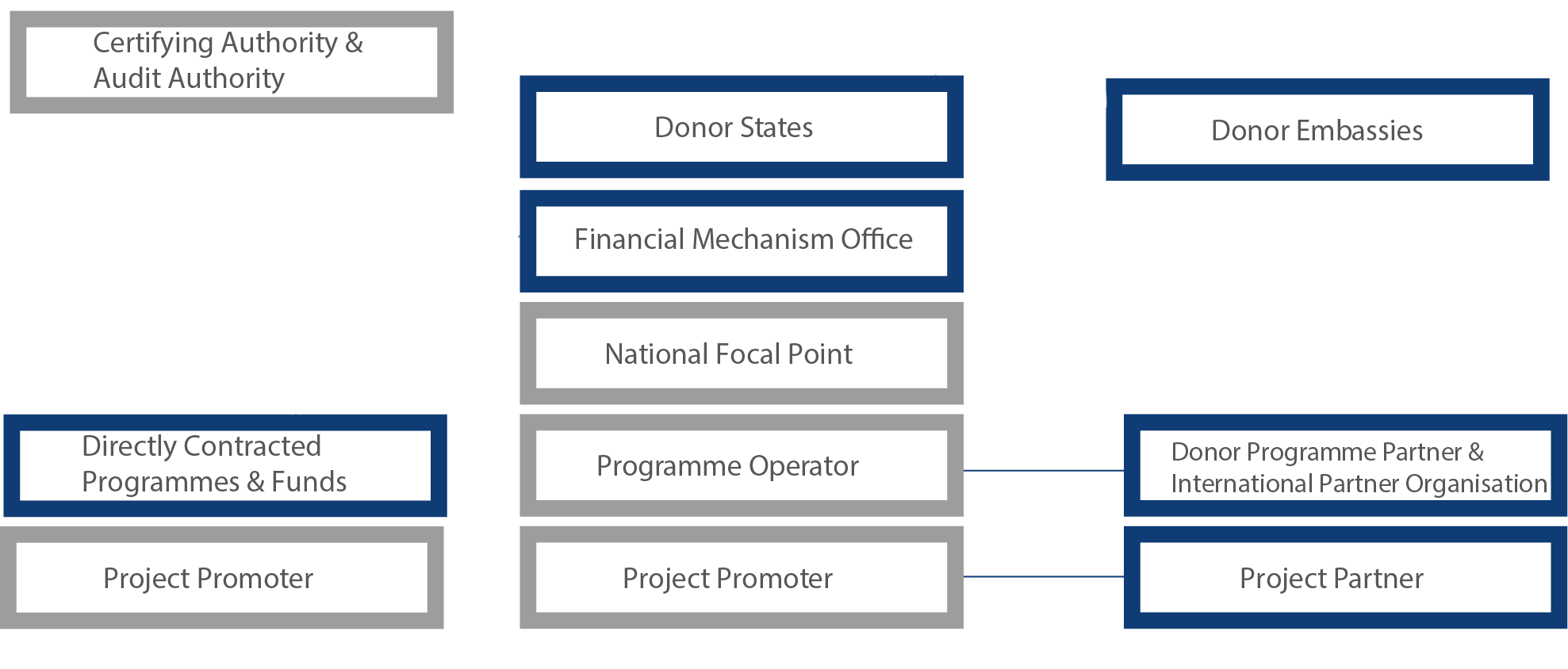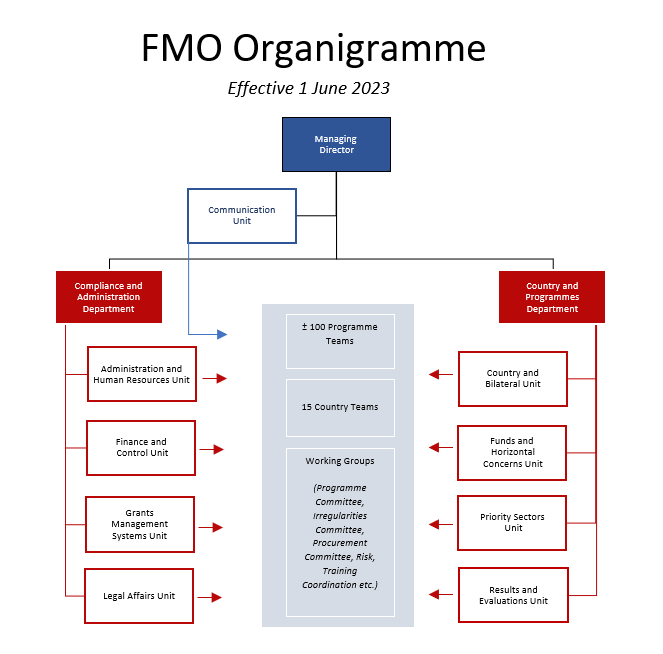
The programme approach of the EEA and Norway Grants means that considerable responsibility is delegated to the beneficiary states. Each beneficiary country has a National Focal Point, most often a ministry, which has the overall responsibility of the Grants. Each country also has several programme operators are responsible for making the funding available to applicants through calls for proposals, appraising applications, selecting and monitoring projects.
Entities from the donor countries are partners in the programmes, contributing in the preparation and implementation of the programmes, and in facilitating partnerships at project level. The donor countries, through their secretariat for the Grants, monitor the implementation process.
Involved entities
The Financial Mechanism Committee (FMC): The decision-making body for the EEA Grants. The committee consists of representatives from the Ministries of Foreign Affairs of Iceland, Liechtenstein and Norway. The FMC draws up and passes policy, regulations and guidelines, approves all programmes and ensures monitoring, control and evaluations.
The Norwegian Ministry of Foreign Affairs: The decision-making body for the Norway Grants.
The Financial Mechanism Office (FMO): The Brussels- based secretariat for the EEA and Norway Grants. The FMO is affiliated with the European Free Trade Association (EFTA) and reports to the Foreign Ministries of Iceland, Liechtenstein and Norway. Functioning as the contact point between Donor and Beneficiary States, the FMO plays a pivotal role in the Grants administration, overseeing their day-to-day management. This includes tasks ranging from financial management to monitoring, ensuring compliance, communication and facilitating results reporting. Below, you will find a detailed organigramme illustrating the structure and various units within the FMO.

National Focal Point (NFP): Each beneficiary country has a National Focal Point which is responsible for achieving the objectives of the Grants, as well as overall management and control of their programmes. Most of the NFPs are located within relevant ministries or public agencies which also have responsibility for managing EU funds. The NFP represents the beneficiary country in its relations with the FMC and the Norwegian Ministry of Foreign Affairs.
Programme Operator (PO): Each Programme Operator is responsible for awarding funding to projects according to agreed criteria, monitoring project implementation and achieving results. In most cases the PO is a public institution with strong ties to the area of the programme – for example, the programme operator for cultural programmes is often the Ministry of Culture.
Fund Operator (FO): In some programmes and funds, the FMO is entrusted with the role of Programme Operator. In these cases, the implementation of the programme or fund is normally performed by an external Fund Operator selected through an open tender process. For the programmes or funds for which the FMO is Programme Operator, the NFP bears no responsibility for their implementation, financially or otherwise.
Donor Programme Partners (DPPs): Public bodies from Iceland, Liechtenstein and Norway with national mandates in their respective fields. They work with their counterparts in beneficiary countries to:
• provide expertise and strategic advice on programme planning and implementation
• facilitate networking and help project promoters find project partners in donor countries
Project Promoters (PPs): Funding through the EEA and Norway Grants goes to entities located in Beneficiary States - as Project Promoters. The Project Promoter is the project coordinator responsible for the project application and, if successful, initiating, preparing and implementing a project financed through the EEA and Norway Grants. Project Promoters can be any entity, public or private, commercial or non-commercial and non-governmental organisations, established as a legal person in the Beneficiary State.
International Partner Organisations (IPOs): International Intergovernmental organisations and actors play an important role, as they monitor compliance with international conventions and treaties across Europe. Furthermore, they assist in areas linked to human rights, democracy and the rule of law. The IPOs play a similar role to the DPPs by providing expertise and strategic advice in their fields. The IPOs for the 2014-2021 funding period are the Council of Europe, the European Union Agency for Fundamental Rights and the Organisation for Economic Cooperation and Development.
Certifying Authority and Audit Authority: As the beneficiary countries carry the main responsibility for implementation of the Grants, they likewise hold the responsibility for establishing the management and control systems. This includes a certifying authority and an audit authority (see Article 5.4 and 5.5 of the Regulation for more information about their roles).
Donor Embassies: The donor Embassies in the beneficiary countries, in particular those of Norway, take part in the dialogue between the donor and beneficiary countries and play an important role in communicating the results of the Grants.